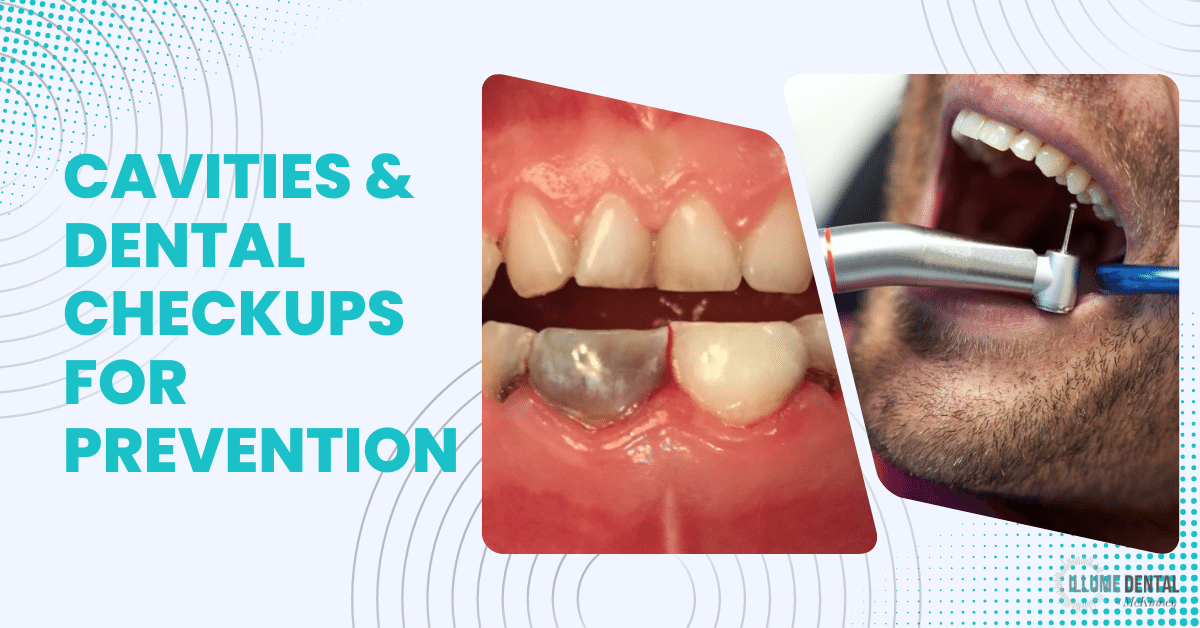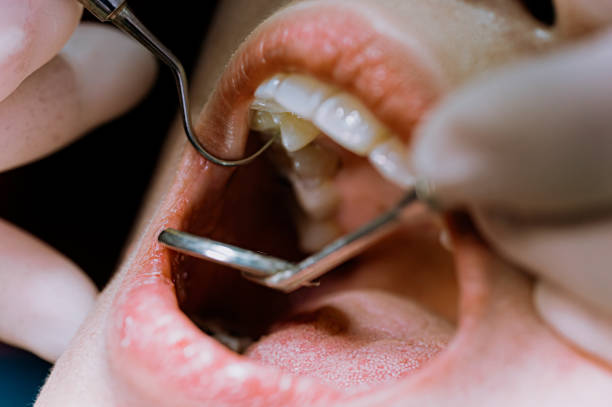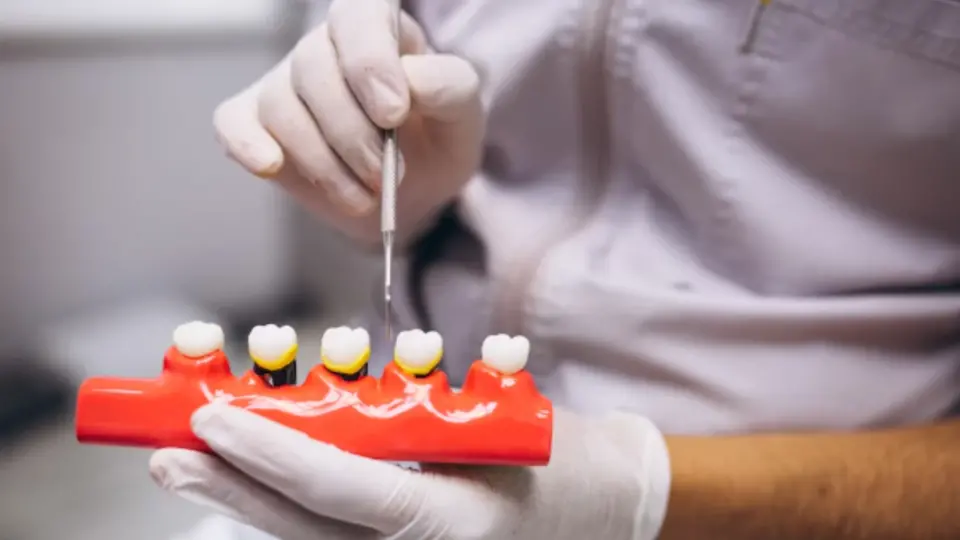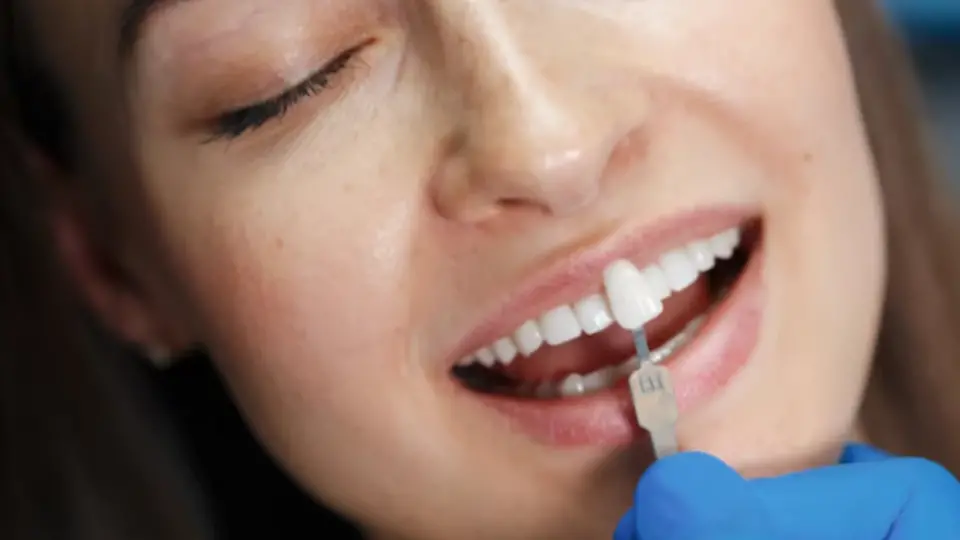Cavities & Dental Checkups for Prevention

Cavities, one of the most common dental issues, might cause serious issues with one’s dental health if not addressed promptly. Regular dental checkups are crucial in cavity prevention and overall oral health maintenance. During these visits, dentists thoroughly inspect your teeth and gums for cavities, gum disease, and other dental issues.
Dental cleaning, an integral part of these checkups, removes plaque and tartar buildup, primarily contributing to cavity formation. Regular cleanings and good home oral hygiene can dramatically minimize cavity risk.
Furthermore, dental checkups provide an opportunity for early detection of cavities. When caught early, the treatment of cavities is far less invasive and more effective. Dentists can apply fluoride or dental sealants to protect your teeth and stop a cavity from progressing.
Regular dental care has health benefits too, checkups also contribute to maintaining a bright and confident smile. After all, a healthy mouth is a key element of overall well-being. So remember, prevention is always better than cure, and your biannual dental appointments are your first line of defense against cavities.
How do regular dental checkups help prevent cavities?
Regular dental checkups are essential for cavity prevention because they offer several key benefits:
- Early Detection: Dentists can identify cavities in their earliest stages when they are small and easier to treat. This prevents cavities from progressing and causing more significant oral health issues.
- Professional Cleanings: Dental hygienists remove plaque and tartar buildup during checkups. This prevents the accumulation of harmful bacteria that can lead to cavities.
- Education: Dentists provide valuable guidance on proper oral hygiene practices, including brushing, flossing, and dietary choices, which are crucial for cavity prevention.
- Treatment Planning: If a cavity is detected, dentists can create a personalized treatment plan, including fillings or other restorative procedures, to address the issue promptly.
What are the common techniques and procedures dentists use during checkups to detect and prevent cavities?
Dentists employ a variety of techniques and procedures to detect and prevent cavities during checkups:
- Visual Examination: Dentists inspect your teeth, looking for signs of cavities, discolorations, or abnormalities.
- X-rays: Dental X-rays show the inside of the teeth and surrounding structures, allowing dentists to identify cavities between teeth or beneath the enamel.
- Cavity Risk Assessment: Dentists assess your risk factors for cavities, such as diet, oral hygiene habits, and medical conditions.
- Plaque and Tartar Removal: Dental hygienists use specialist plaque and tartar removal equipment to prevent cavities.
- Fluoride Treatments: Dentists may apply fluoride to strengthen dental enamel helps withstand bacterial acid assaults.
- Dental Sealants: Preventing cavities by food particles and bacteria by applying a sealant to the chewing surfaces of your molars and premolars.
Can cavities be prevented entirely through dental checkups and hygiene practices?
Cavities cannot be guaranteed to be prevented entirely through dental checkups and hygiene practices. Still, these measures are crucial in significantly preventing cavities and improving dental health. Here’s why:
Dental Checkups
- Early Detection: Regular dental checkups allow dentists detect cavities early when they are small and more manageable. Early intervention prevents cavities from progressing and causing more significant dental problems.
- Professional Cleanings: Dental hygienists clean professionally during checkups, removing plaque and tartar buildup. This reduces dangerous oral microorganisms which are a primary cause of cavities.
- Preventive Measures: Dentists can recommend and implement preventative measures during checkups, such as fluoride treatments and dental sealants, which strengthen enamel and provide protection against cavities.
Hygiene Practices
- Regular Brushing: Brushing your twice-daily fluoride toothpaste removes food particles, germs, and plaque from teeth, reducing the risk of cavities.
- Flossing: Flossing daily is essential for cleaning Between teeth and along the gumline, toothbrushes may miss. Removing plaque from these areas helps prevent cavities and gum disease.
- Healthy Diet: Maintaining a balanced diet with limited foods and drinks with sugar and acid diminish exposure of teeth to cavity-causing substances.
- Hydration: Staying hydrated helps maintain saliva production has a natural protective effect against cavities by neutralizing acids and washing away food particles.
While these dental checkups and hygiene practices are highly effective in cavity prevention, individual factors, such as genetics, diet, and overall health, can still influence cavity risk.
Complete prevention is not always possible, but with consistent and proactive oral care, the risk of cavities can be significantly reduced, and any detected cavities can be treated promptly, preventing them from worsening and causing more extensive dental issues.
Maintaining regular dental checkups and adhering to good dental hygiene is crucial to success and maintenance optimal oral health throughout your lifetime.
Are there specific age groups or individuals at higher risk of developing cavities who should prioritize dental checkups for prevention?
Certain age groups and individuals may be at higher risk of developing cavities and should prioritize dental checkups for prevention:
- Children and Adolescents: Their developing teeth are often more susceptible to cavities, making early intervention crucial.
- Seniors: Age-related factors, such as reduced saliva production and medications, can increase the risk of cavities in older adults.
- Individuals with Medical Conditions: Certain medical conditions or treatments can affect oral health and increase the risk of cavities.
- Those with Poor Dietary Habits: A diet heavy in sugar and acid can cause cavities. Regular checkups are essential for individuals with less-than-ideal dietary habits.
- Patients with Dry Mouth: Conditions that cause dry mouth reduce saliva flow, which protects against cavities.
What role do fluoride treatments and dental sealants play in cavity prevention during dental checkups?
Fluoride treatments and dental sealants are valuable tools in cavity prevention:
- Fluoride Treatments: Fluoride strengthens tooth enamel against acid assaults. Dentists may apply fluoride topically during checkups, especially for individuals at higher risk of cavities.
- Dental Sealants: Thin, protective sealants are applied to molar and premolar chewing surfaces. They block food and bacteria from gathering in these teeth’s deep grooves, minimizing cavity risk especially in children.
Regular dental checkups are fundamental in the prevention of cavities. Dentists use techniques and procedures to detect cavities early and provide necessary treatments.
While complete prevention may not always be possible, consistent checkups, good oral hygiene practices, fluoride treatments, and dental sealants significantly reduce the risk of cavities and contribute to a lifetime of healthy smiles. Prioritizing dental checkups at all ages is the key to achieving and maintaining excellent oral health.
Let Us Take Care of Your Oral Health
At Illume Dental of McKinney, we tailor our preventive care to each patient’s unique needs and prioritize cavity prevention during dental checkups. Our experienced team will assess your oral health, recommend appropriate treatments, and ensure you receive the highest quality care to keep your smile healthy and beautiful.
With the combined benefits of fluoride treatments and dental sealants, we’re committed to safeguarding your teeth and promoting lifelong oral health.



